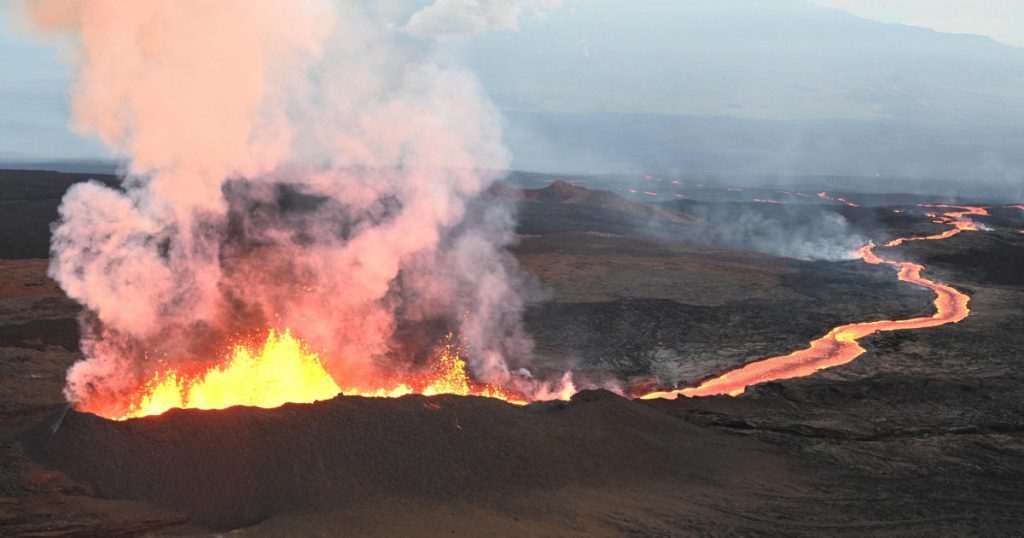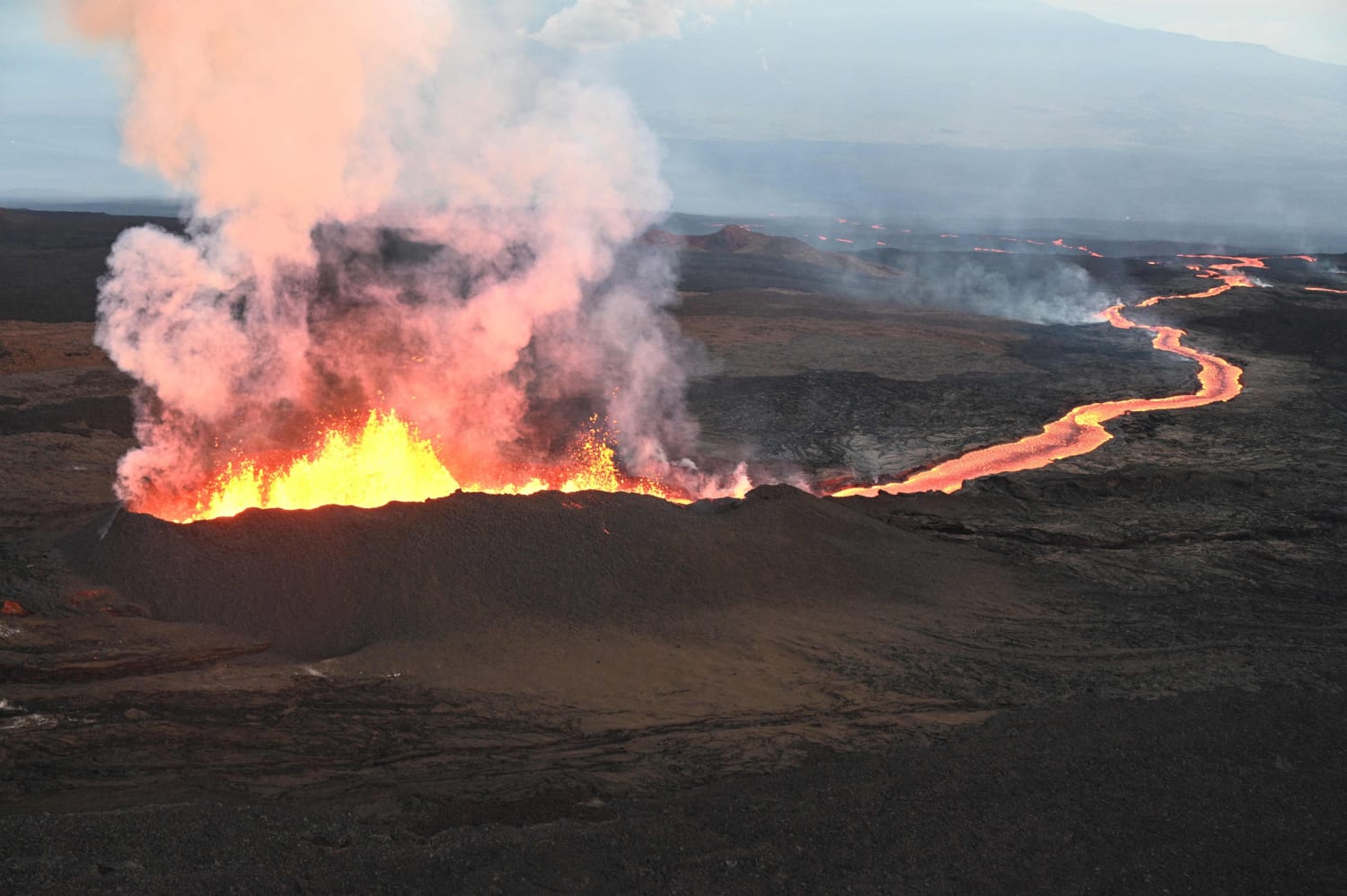

Officials downgraded the alert level for Hawaii’s Mauna Loa volcano from a warning to a watch on Saturday as they predict that the eruption of the world’s largest active volcano could soon end.
“High eruption rates will not resume based on past eruptive behavior and current behavior suggests that the eruption may end soon,” the U.S. Geological Survey said in a bulletin issued Saturday.
The new alert level reflects “the limited hazards associated with the current activity,” the latest update states.
The update also notes that the volcano’s lava output and gas emissions were “greatly reduced,” and that a lava flow stagnated 1.9 miles from the Daniel K. Inouye Highway, also known as Saddle Road, “is no longer a threat.”
Earlier this month, officials warned that the lava flows were traveling toward the highway — which connects the east and west sides of the Big Island, acting as a thoroughfare between the towns of Hilo and Kona — prompting concerns among locals who said a blockage of the road would pose major challenges for commuting across the island.
Scientists with the Hawaii Volcano Observatory will continue to monitor the volcano “for any indication of changes to activity,” the U.S. Geological Survey said.
Mauna Loa, which means “Long Mountain,” covers half the island, according to the USGS.
Its eruption began Nov. 27, marking its first eruption since 1984 and prompting warnings from officials that residents stay alert. To many Native Hawaiians, the eruption carried cultural and political symbolism given that it erupted just before Hawaiian Independence Day.
Before the most recent eruption, geologists had recorded 33 eruptions since 1843, making Mauna Loa among the world’s most active volcanoes. It is one of six volcanoes in Hawaii, according to the agency.
Corky Siemaszko contributed.

 Latest Breaking News Online News Portal
Latest Breaking News Online News Portal




